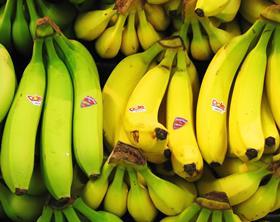
In early January, a case involving nearly 1.1m pieces of fruit bearing counterfeit labels, was heard in Shanhai Pudong New Area People’s Court (Shanghai court).
Brands including Dole, Zespri and Sunkist were replicated through the manufacture and sale of labels printed with the brands trademarks.
Thirteen defendants were prosecuted in this case, and handed various penalties including prison sentences, detentions, fines and suspensions.
The harshest sentence was given to a man only reported as ‘Mr Ji’ who sold counterfeit stickers via his shopfront and online.
Ji had sold over 40,000 stickers when he was caught in May 2017, and earned a prison sentence of two years and eight months, as well as a Rmb9,000 fine (US$1,414).
World Trademark Review reported the case which was just one of a number of notable incidents of food fraud in China. The Chinese government has been handing down harsher sentences for incidents involving food fraud, in a bid to protect the brands and quality of China’s food manufacturing, and health of the country.
In 2008 a famous milk scandal saw two men sentenced to death and a third to life imprisonment after milk and infant formula were contaminated with melamine, which affected an estimated 300,000 people and caused the deaths of six babies.
An official of the Shanghai court stated that the convictions in fake label cases was a show of efforts when combatting violations of intellectual property and counterfeit goods in China.
Between 2015 and 2017 cases involving infringements of intellectual property rights made up nearly 40 per cent of cases heard by the Shanghai court, at 11,787 cases.



